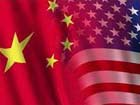| Videos | ? Latest |
|
? Feature | ? Sports | ? Your Videos |
US debt crisis slows Chinese economy

 0 Comment(s)
0 Comment(s) Print
Print E-mail
CNTV, August 13, 2011
E-mail
CNTV, August 13, 2011
The US and European debt crises continue to trigger chain reactions across the world, spreading radical fluctuations in the financial markets. Despite a recovery at the stock market, China still faces challenges in dealing with the current financial storm.
Although far from the center of the current global financial storm, China is still suffering its effects.
The downgrade of the US credit rating and the falling value of US debt are bad news for China's large holdings of foreign exchange assets, two thirds of which are denominated in US-dollars.
As the US' largest credit holder, China is all too aware of its possible losses.
Zhang Xiaoqiang, deputy head of National Development and Reform Commission, said, "The US Federal Reserve's policy of keeping interest rates near zero until 2013 will lead to higher world-wide inflation, and higher commodity prices. Economies like China have to pay the bill for the economic recovery. If the US continues its loose monetary policy, it will hurt the purchasing power of China's foreign exchange reserve."
Zhang believes the debt crisis will lead to a new economic downturn. This would result in a decline in demand in overseas markets, possibly affecting China's exports.
At the same time, the depreciation of US dollars is stoking inflation in China.
"There are many uncertainties in the developed economies. They are facing high unemployment, high inflation, and weak consumption demand. This will definitely have a negative impact on China on its exports, and commodity prices," said Zhang.
The US debt crisis is likely to dampen China's economic expectations, as the country's latest inflation figures have already hit new highs. The US's debt woes may worsen global liquidity and lead China to toughen its counter-inflation measures at home.
However, while Zhang Xiaoqiang admits that China's economic growth is expected to slow down later this year, a huge downturn isn't likely.
"GDP growth this year is expected to be 8%, In the first half of the year we had a 9.6%, so in the second half a lower GDP growth is within our expectations. We need to focus more on the quality rather than the quantity of economic development," he said.
Experts believe China has to strike a balance between maintaining its growth, curbing inflation and restructuring its economy. A fresh round of economic turmoil could force China to shift its focus to the domestic market. And China may need to be cautious in adjusting its tight monetary policy.





